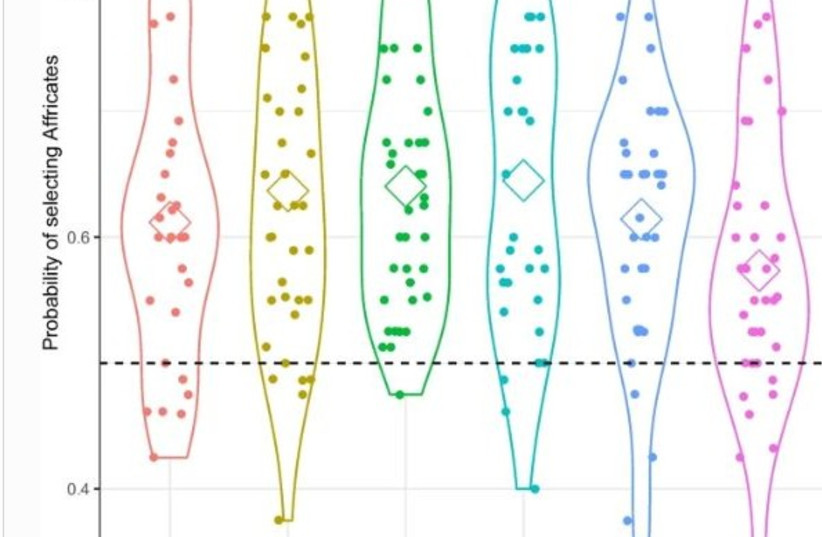Swear words come in a wide variety of languages, but British researchers have found that they have a lot in common, whether they are in Hebrew, Arabic, French or Albanian. They tend to lack certain sounds such as l, r, and w. This common pattern in profanity indicates that these sounds, called approximants, may appear less offensive to listeners.
Swear words are thought to have sounds that help facilitate the expression of emotion and attitude, but no study until now has investigated if there is a universal pattern in the sound of swearing across different languages.
Shiri Lev-Ari, an Israeli psychology lecturer at Royal Holloway at the University of London, and her colleague Ryan McKay published their interesting findings in Psychonomic Bulletin and Review under the title “The sound of swearing: Are there universal patterns in profanity?”
What gives swear words their potency? “Part of the answer, of course, may lie in what these words literally refer to – after all, the usual suspects include taboo topics such as excretion and sex,” they wrote. “However, the sounds in swear words may also play an important role… Our findings indicate that not all sounds are equally suitable for profanity.”
Different languages and their expressions

The pilot research studied speakers of five unrelated languages (20 individuals per language) and asked them to list the most offensive words they knew in their language, excluding racial slurs. The initial study revealed that swear words were less likely to include approximants, which include sounds like l, r, w and y. The authors suggest that approximants may be less suitable than other sounds for giving offense and investigated this in two further studies.
In the first study, they examined 215 native speakers of various languages – Hebrew, Hindi, Hungarian, Korean and Russian. In total, they collected 86 swear words and phrases in Hebrew, 126 in Hindi, 68 in Hungarian, 70 in Korean and 94 in Russian.
They also looked at swear words in Arabic, Chinese, Finnish, French, German and Spanish. The team judged foreign words less likely to be swear words if they contained an approximant. The authors asked participants to rate pairs of pseudo-words (imaginary words created by the authors), one of which included an approximant.
For example, in Albanian, the authors took the word “zog”, meaning “bird”, and changed this to “yog” to include the approximant “y” and “tsog” without an approximant. The authors found that participants were significantly less likely to judge that words with approximants were swear words and selected words without approximants as swear words 63% of the time.
What happens with words that are "less offensive"?
In a follow-up study, the authors also looked at English-language minced oaths – which are variations of swear words deemed less offensive, for example “darn” instead of “damn.” The authors found that approximants were significantly more frequent in minced oaths than in swear words. They propose that this introduction of approximants is part of what makes minced oaths less offensive.
The use of approximants may not necessarily render a word inoffensive, but the authors suggest that their findings indicate an underlying trend in how swear words may have evolved across different languages. They also highlight that some languages do have swear words that include approximants such as French, but French speakers still rated the swear words lacking approximants as pseudo-swear words, suggesting there may be a universal bias.
So, are swear words universally patterned on the basis of sound? “Our results point to a robust cross-linguistic sound symbolic association in the minds of human speakers. As to the wider universe, the jury is out: surprisingly, according to The Hitchhiker’s Guide to the Galaxy, the rudest word in the universe is ‘Belgium,’ which contains an approximant” – which they say later fits into their theory because it is actually a minced oath.
The authors conclude that their work suggests a potential universal pattern to swear words across different languages, with the lack of approximants a common feature when perceiving swear words.
